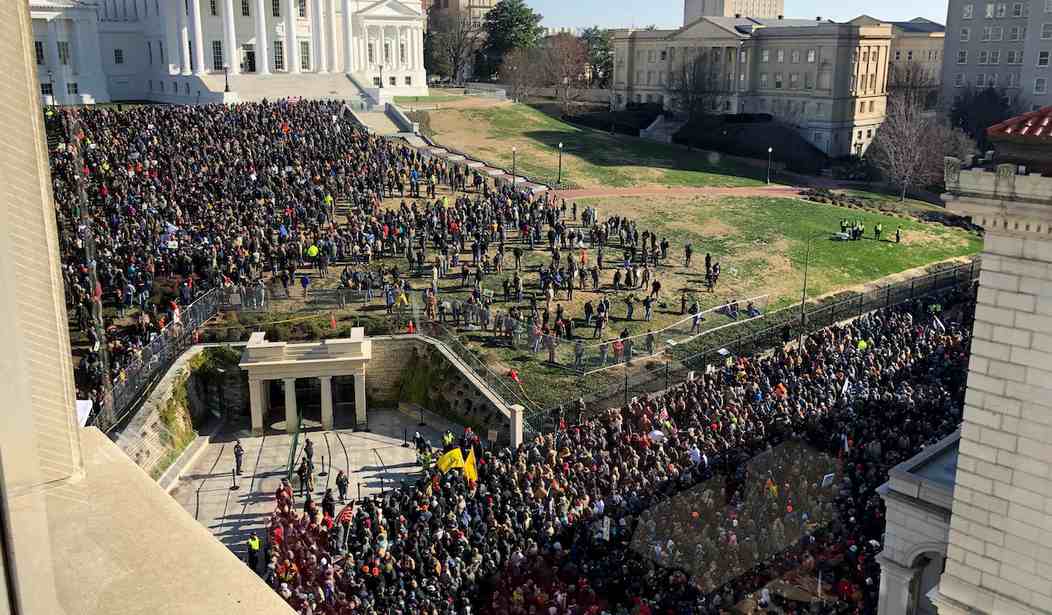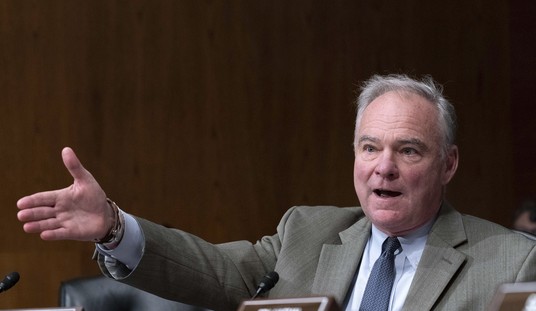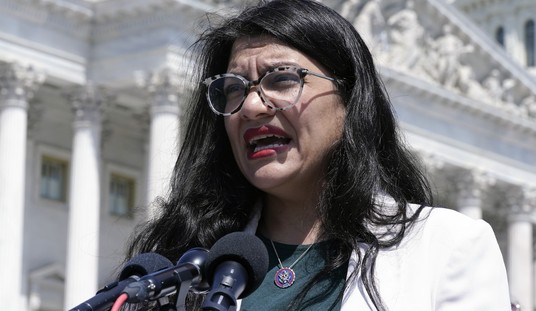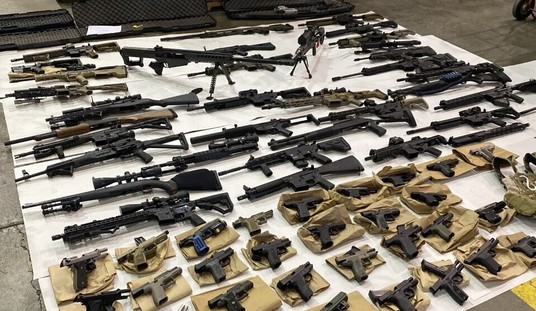In the aftermath of the Richmond protest, we’ve seen a lot of…questionable takes. It’s unsurprising, really, since you’ll be hardpressed to find a gun rights proponent who doesn’t feel like the media is against them. Of course, they feel that way because every fiber of their being is taking in the plethora of evidence showing that to be the case.
However, one of the more interesting stories about Richmond comes from the Dallas Morning News.
In it, the writer, a Northwestern University graduate student named Mark Satter, made an important observation that many of his colleagues could learn from.
When asked for an interview, members of a militia group clad in tactical gear and carrying semi-automatic rifles declined. “Sorry, we don’t talk to the press,” they said, “you guys like to twist what we say.”
According to a Gallup poll, only 41% of Americans have a “great deal” or “fair amount” of trust in the media to accurately report the news. Among Republicans, many of whom oppose gun control efforts, just 15% have a fair amount of trust in the press.
The coverage preceding the protest raises questions about how well members of the press understand the different factions within the country’s conservative communities, and how easy it can be to group conservatives like pro-gun rights activists with the fringe white supremacist and nationalist groups. It would serve the country to give gun rights protesters like those in Richmond a fair hearing.
The danger is that in a deeply divided political climate, misrepresenting gun owners, a large swath of Americans, will only deepen resentment on both sides. And, the misrepresentation of these groups will further their distrust of the press, making it increasingly difficult for journalists to relate to those Americans.
Satter makes a pretty good point here.
How many of us distrust the press because of just how often they’ve mischaracterized us?
Personally, I recall just how many op-eds I saw between 2008 and 2016 characterizing disagreement with President Obama–disagreement I typically shared–as being motivated by nothing other than the melanin content of the president’s skin. I knew damn good and well my issues with Obama weren’t because of his race, but his policies. The lily-whitest man on Earth could have presented those same positions and I would have opposed them just as vehemently.
The problem was, the media didn’t know how to relate to people like me. They didn’t understand why I opposed Obama and they didn’t really care to. They had their minds made up and didn’t want to be confused with the facts. Their mind-reading was all they really needed.
It’s a problem that hasn’t changed during the Trump era. It’s why I can find plenty of op-eds arguing that if a large number of blacks paraded down the streets armed like these same militias did in Richmond, we’d be singing a different tune.
Of course, that’s because they don’t actually know any of us. They haven’t taken the time to talk to us to see what our take on how we feel about a group of black gun owners exercising their Second Amendment rights in the same way. Nevermind that a number of black gun owners became mini-celebrities during Richmond.
So, they just fill in the gaps with their own mindreading.
In the process, though, they’ve done more to alienate us and foster still more distrust.
Satter, a graduate student, seems to understand this far better than his future colleagues.








Join the conversation as a VIP Member